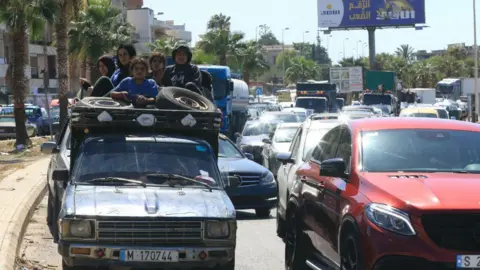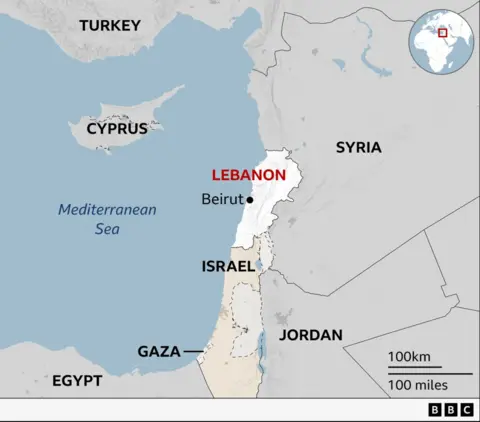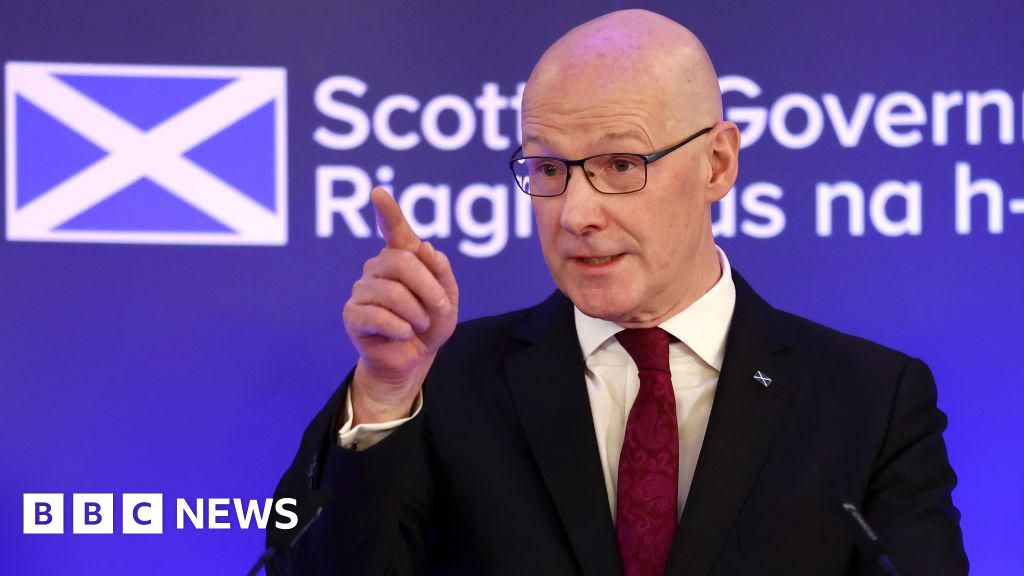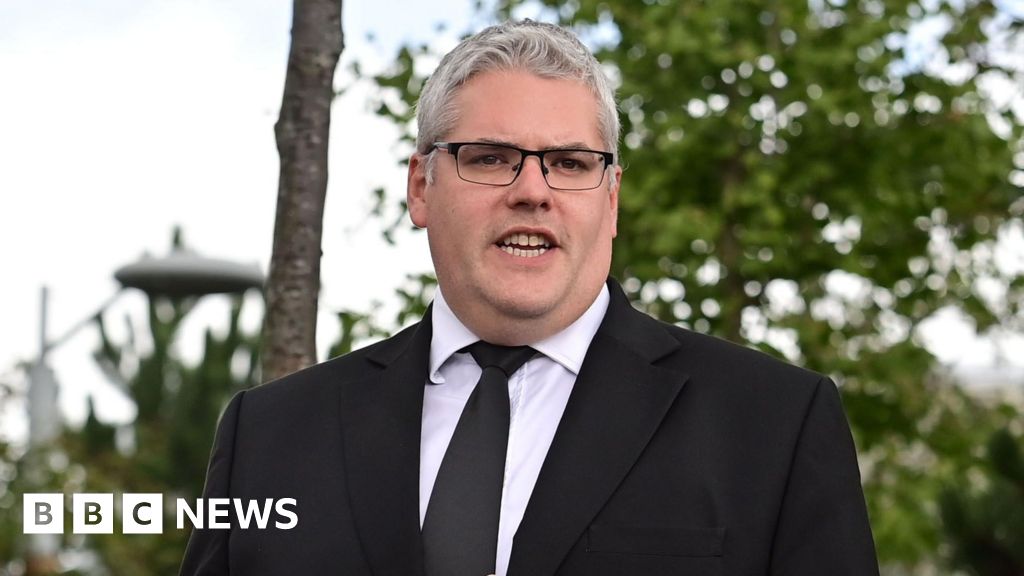
 Getty Images
Getty Images
Britons have told the BBC they have struggled to leave Lebanon as fighting between Israel and Hezbollah continues to escalate.
The UK has urged British nationals to leave immediately, but some are having trouble getting flights out of the country.
Prime Minister Sir Keir Starmer said that for Britons still in the country, "the time to leave is now".
The British government has also sent about 700 additional military personnel to Cyprus in case an emergency evacuation is required.
Chloe Lewin, 24, from London, told BBC News she is due to get a flight out of Lebanon on Friday.
"Keir Starmer’s telling everyone to get out but we can’t," she said.
"You can't get out this week because they're [flights] all full and every time you get to the last page of the booking, it just crashes and it says you can't book a flight.
"And then people I know who have had flights, they're all getting cancelled.
"My friends were meant to leave this morning on Egyptair - that got cancelled, so they can't get out. "
Speaking of her other British friends in Lebanon, she said they felt helpless and were waiting to be evacuated.
The British Embassy is telling Britons to "get out", she said, adding: "They're not helping us so we can't. There's nothing we can do."
The freelance journalist, who has lived in Beirut since January 2023, described the atmosphere in the part of the city she is living in as calm but also "scary because you never know what's going to happen next".
Talking about how hard it is for people to leave Lebanon, she said: "I want to stay but I’m leaving because of my family.
"Even though we’re technically expats and we’re not from here, people have lives here as well. People have jobs here. People have spent seven years here, two years here.
"It’s not as simple as just leaving."


Keir Starmer has urged Britons to leave Lebanon "immediately"
Isabella Eda Baker said she was too scared to go to the airport in Beirut and decided to head to Libyan capital Tripoli and then head by boat to Turkey.
"I'm now in Tripoili at a friend's house. We are hoping the boat will leave at 6 or 7pm," said the student, who had been studying for a masters degree in human rights at a French university in Beirut.
"I'm with a Spanish and Swiss friend.
"I’m going to stay with family in Turkey before we work out what to do next."
Describing life in Lebanon since the pagers attack, she said she has heard drones and sonic booms over the city.
She said she empathises with the Lebanese and migrants in the country who do not have the privilege to be able to leave.


Clementine Brown said she was taking her decision to leave or remain in Lebanon "day by day"
Other Britons have decided to stay in Lebanon for the time being.
Anne Bouji, who has lived in the country for the last seven years, said she was going to stay with her partially paralysed Lebanese husband who does not have a British passport or visa.
"He really doesn't have any desire to leave, he has his sister and sister-in-law and their children, so I think I'm stuck, " she told BBC Radio 4's World at One programme.
She said if the couple were able to travel, because of the situation with banks in Lebanon she would not be able to access her money and would have to "start again with nothing" in the UK.
She added "it was relatively safe" on the eastern side of Beirut where she lives, but in other parts of the city people are "very afraid and you can taste the fear in the air".
Clementine Brown, a British expat in Beirut and co-director of an organisation helping young people with tech skills, told BBC News she heard the sound of a bomb around midnight and although she was in an area of the city considered safe, she did not feel safe.
When asked if she would consider leaving, she said: "If there's an evacuation operation and embassy staff are asked to leave then that's a good cue to leave. But we're taking it day by day."
Alistair, a Briton who has lived in Lebanon for 10 years, said: "We hope that sanity can prevail and peace can prevail at some point."
Starmer said contingency plans are being ramped up, but urged Britons not to wait for those.
"There are still commercial flights, it’s very important that they hear my message, which is to leave, and leave immediately," the prime minister stressed.
He added he was was "very worried" about the escalation in fighting and called on a ceasefire and “all parties to step back from the brink, to de-escalate".
The Foreign Office said the situation in Lebanon was deeply concerning and the risk of escalation remains high.
"That’s why we are continuing to advise people to leave now while commercial routes remain available," a statement said.
"The government is planning for a range of scenarios and is prepared to provide additional support to British nationals if required."


Officials say the UK already has a significant diplomatic and military presence close to Lebanon, including RAF Akrotiri in Cyprus and two Royal Navy ships - RFA Mounts Bay and HMS Duncan - which have been in the eastern Mediterranean over the summer.
The Royal Air Force also has planes and helicopters on standby.
Tensions have been growing across the Middle East since Hamas gunmen attacked Israel on 7 October last year, killing about 1,200 people and taking 251 others as hostages.
Previously sporadic fighting between Israel and armed group Hezbollah escalated on 8 October - the day after Hamas's unprecedented attack. Hezbollah fired at Israeli positions, in solidarity with Hamas.
Hezbollah, proscribed as a terrorist organisation in the UK and other countries, has launched more than 8,000 rockets at northern Israel and the Israeli-occupied Golan Heights. It has also fired anti-tank missiles at armoured vehicles and attacked military targets with explosive drones.
Last week Hezbollah’s communication devices started exploding across Lebanon.
Israel then launched a series of air strikes on Monday that have so far killed 560 people according to the Lebanese government.

 2 months ago
24
2 months ago
24









